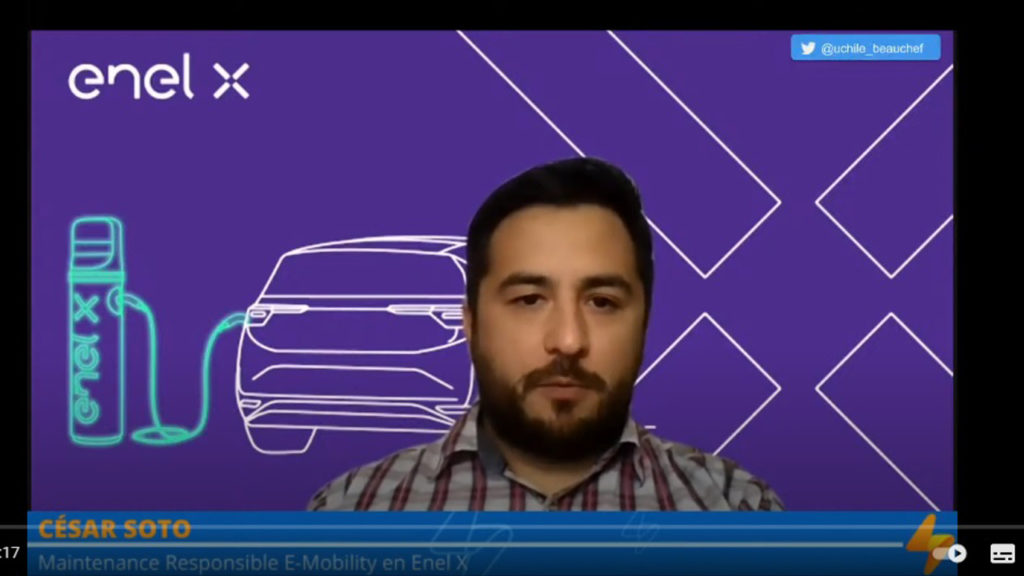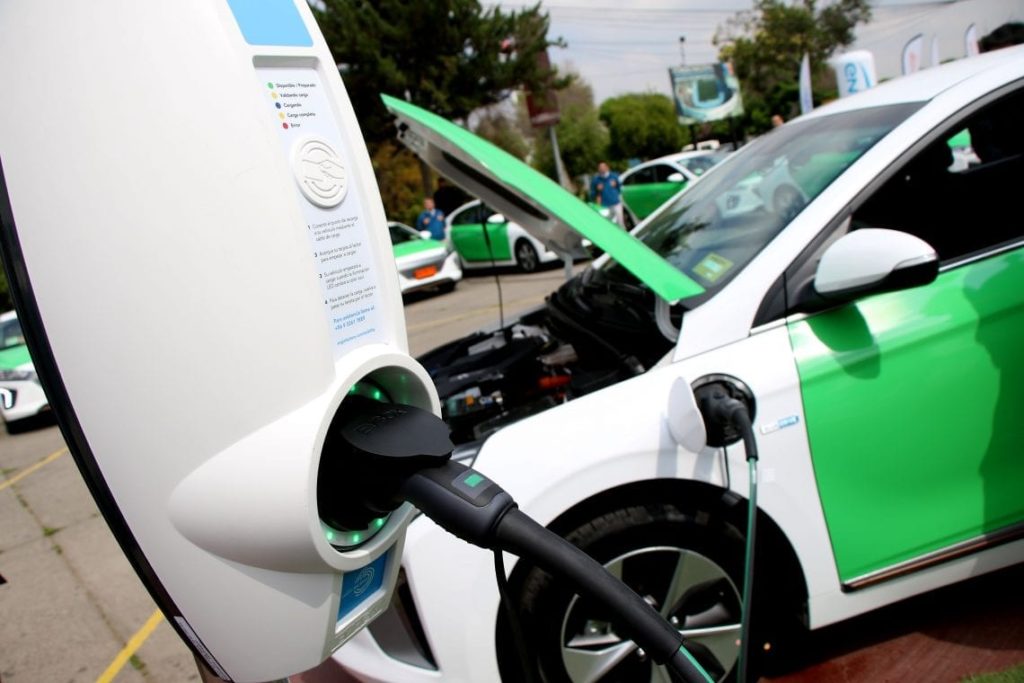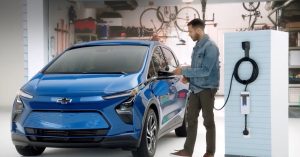Electromobility continues to consolidate in Chile with the appearance of more electric vehicles in urban areas, as well as the transformation of the transport sector. For this reason, a group of experts from both the public and private spheres debated the subject during a panel called “The challenge of electromobility in Chile”, organized by the Eolian project of the University of Chile.
César Soto, Maintenance Responsible E-Mobility at Enel X, revealed that his motivation to enter the world of electromobility in Chile started from the user experience. “I got an electric car and got a taste for this technology. It comes all from the user experience. As an electronic engineer I have a lot to learn about a science that is just beginning and we can contribute a lot”.
He explained that the Enel X division was born in 2017 as a way to deliver an additional product not only commissioned for generation and distribution. “For a long time, energy was considered to be sold without taking additional value from it and Enel X took charge of how energy use can be improved by making it more efficient in terms of environment, lighting, and electromobility issues”, he said.

Soto explained that the company has different areas and different segments that work with cities, with industries and also with the user to reach electromobility.
“Electromobility is a very dynamic subject. At Enel X we not only work as distributors and installers of chargers, but also develop technology. It is a very broad and global company in the US, Italy and South America. Electromobility goes far beyond a car and charger. It has a whole intelligence issue that is growing, ” added.
Public sector
Daniela Soler, head of the Efficient Transportation Unit of the Ministry of Energy of Chile, pointed out that one of the objectives why public policies are applied is to seek sustainable transport to minimize the impact on the environment.
According to the data provided by the official, more than a third of the energy in Chile is consumed by the transportation sector. “That energy comes from fossil fuel so we depend on buying these fuels in other countries.”
She also reported that transportation is responsible for a quarter of the gases that are emitted. “That is the basis that moves us to work for a sustainable, clean transport,” explained Soler.
She assured that public policies “are already in execution to have a more sustainable transport” and are of vital importance. She explained that “charging an electric vehicle with energy that is produced with coal or oil does not make any sense, so they seek to decarbonize the electrical matrix.
“Everything makes sense in a set, the idea is not to change one vehicle for another but to have a bigger idea of the entire sector that has many edges. A market for services of things that did not exist is being generated, many opportunities and new markets are appearing”with the issue of electromobility in Chile.
Williams Calderón, director of the Center for Sustainable Acceleration of Electromobility (Centro de Aceleración Sostenible de Electromovilidad, CASE), was another of the prestigious participants in the forum, highlighting that electromobility opens up a world of opportunities and knowledge. “It is a personal challenge to be in everything that has an impact on society and technological growth,” he said.
He explained that the formation of the CASE was born from the need to occupy a space of technological initiatives and solutions. “To be a supplier of what we do not have today for our users that can also be industries.”
Calderón celebrated the growth of electromobility in Chile. “This is already an industry in our country, it is a very challenging new technological market and we seek that more and more cities can join this new lifestyle.”
Future vision
Daniela Soler reveals that the Chilean Ministry of Energy has a goal that 40% of vehicles are electric and 100% of public transport is electric.
“Inserting a new technology is complicated and requires the contribution of many actors at the same time. We are making a great effort to coordinate the ministries of Energy, Transport and Environment in this common objective that transport reduces its emissions,” concluded Soler.
For his part, Soto pointed out that Enel X carries out the “electroute” program which, as he explained, there are 1,200 chargers that have to be installed between now and 2025 “and they are not only chargers at the central level or in large cities but at the national level”. “It’s quite a challenge for EV users to get around easily,” she said.
In addition, she informed that not only from Enel X they are carrying out projects for Chile. “The electrroute is one of our strengths, but we also have the first Pan-American electromobility route. We have chargers on the Argentine side and it extends through different countries until it reaches Los Angeles, United States. We already have a base network plus what we are promoting,” she explained.
Soler assures that electromobility is here to stay and Chile is experiencing an exponential moment of electric vehicles. “It is a reality and Enel X takes care of that,” she pointed out.
“The reality of cities is different and Enel X is going to work on that to decentralize the issue of electromobility,” she concluded.
For Calderón, electromobility in Chile has to be sustainable over time as a permanent activity. To do this, he said that they “must constantly adapt to both regulations and human capital and users.”
Regarding CASE’s vision for the future, Calderón said that they have initiatives to decentralize electromobility and take it to the provinces.
He also pointed out that the Center for Sustainable Acceleration of Electromobility in Chile works as a facilitator of electromobility in the midst of a large number of actors that must come together for change to be possible.




